Bibi Russell: A Fashion Pioneer Weaving Bangladeshi Tradition into Global Trends
Bibi Russell is a prominent Bangladeshi fashion designer and internationally acclaimed fashion model, known for her groundbreaking work in the fashion world. She is the visionary behind ‘Bibi Productions,’ a celebrated fashion brand that showcases the rich heritage of Bangladeshi craftsmanship by collaborating with local artisans.
Bibi was born in Chittagong and raised in Dhaka, where she pursued her education locally before making history as the first Bangladeshi woman to attend the prestigious London School of Fashion. She graduated in 1975, and her exceptional talent soon led to contracts with renowned labels. Bibi’s influence in fashion and modeling was solidified through her work with top magazines such as Vogue, Cosmopolitan, and Harper’s Bazaar, and with iconic designers including Yves Saint Laurent, Karl Lagerfeld, and Giorgio Armani.
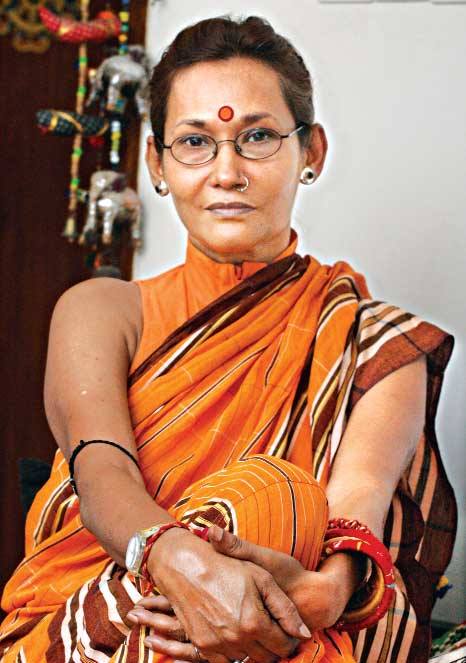
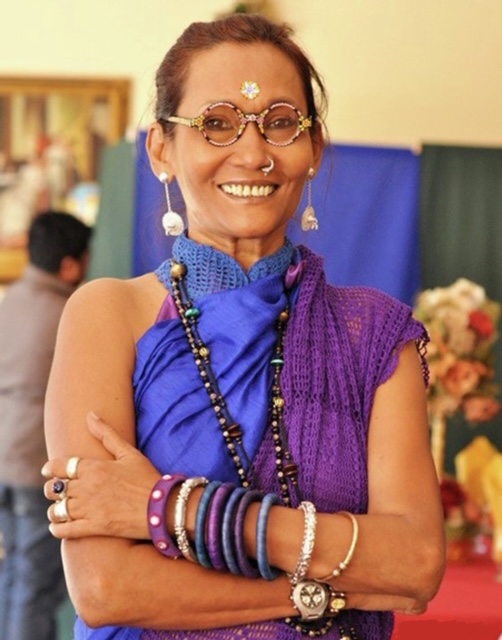
Early Life and Education of Bibi Russell
Bibi was never an academic, unlike her siblings. “I only studied to pass,” she says simply.”I liked to draw, as a child when I saw many villagers come to our home, I would admire the bright and beautiful colors they would wear in their sarees and gamchhas, and I would ask my father why I needed to go to school to learn things when these people could be so artistic naturally.”
Born into a culturally rich environment in Bangladesh, Bibi Russell was deeply influenced by her surroundings. Growing up in Dhaka, she was immersed in a world of music, literature, and art. “I am who I am and where I am today because of my parents,” says Bibi. Her childhood was shaped by the vibrant sounds of Rabindranath Tagore’s music and the elegance of Chanel fashion magazines that found their way into her home. This exposure sparked her early interest in fashion and design. She said “When I saw the fashions in these magazines, I felt like, why shouldn’t I be able to make my own?”
At the age of ten, Bibi was gifted her first sewing machine. This early introduction to the craft allowed her to experiment with making her own dresses. Although her creations were far from perfect, the process of designing and sewing her own clothes gave her a sense of accomplishment and independence.
Recognizing her burgeoning interest in fashion, Bibi pursued her education with a focus on design. She left Bangladesh to study at the prestigious London College of Fashion. There, she earned a graduate degree in Fashion Design.
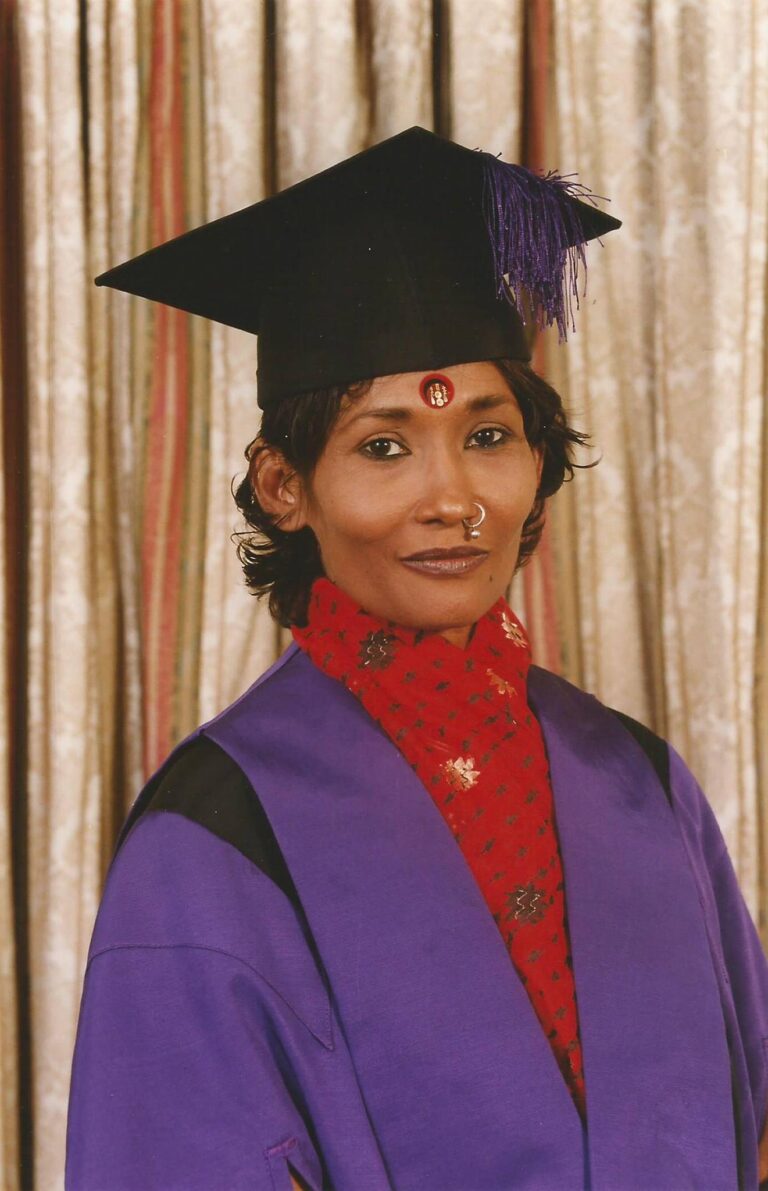
Career Beginnings
In 1975, Bibi Russell showcased her talent at her graduation show. She presented ten original designs, modeling the first and last pieces herself at the insistence of one of her professors. This pivotal moment led to significant modeling opportunities. Bibi quickly made a name for herself in the fashion world, beginning with assignments for prominent magazines like Vogue, Cosmopolitan, and Harper’s Bazaar.
Modeling Career
For the first five years of her career, Bibi was primarily involved in photo modeling, which allowed her to gain international recognition. Her runway career soon followed, and she worked with renowned designers such as Yves Saint Laurent, Kenzo, Karl Lagerfeld, and Giorgio Armani. Bibi’s presence on the runway was notable, sharing the stage with iconic models like Naomi Campbell, Claudia Schiffer, and Kate Moss.
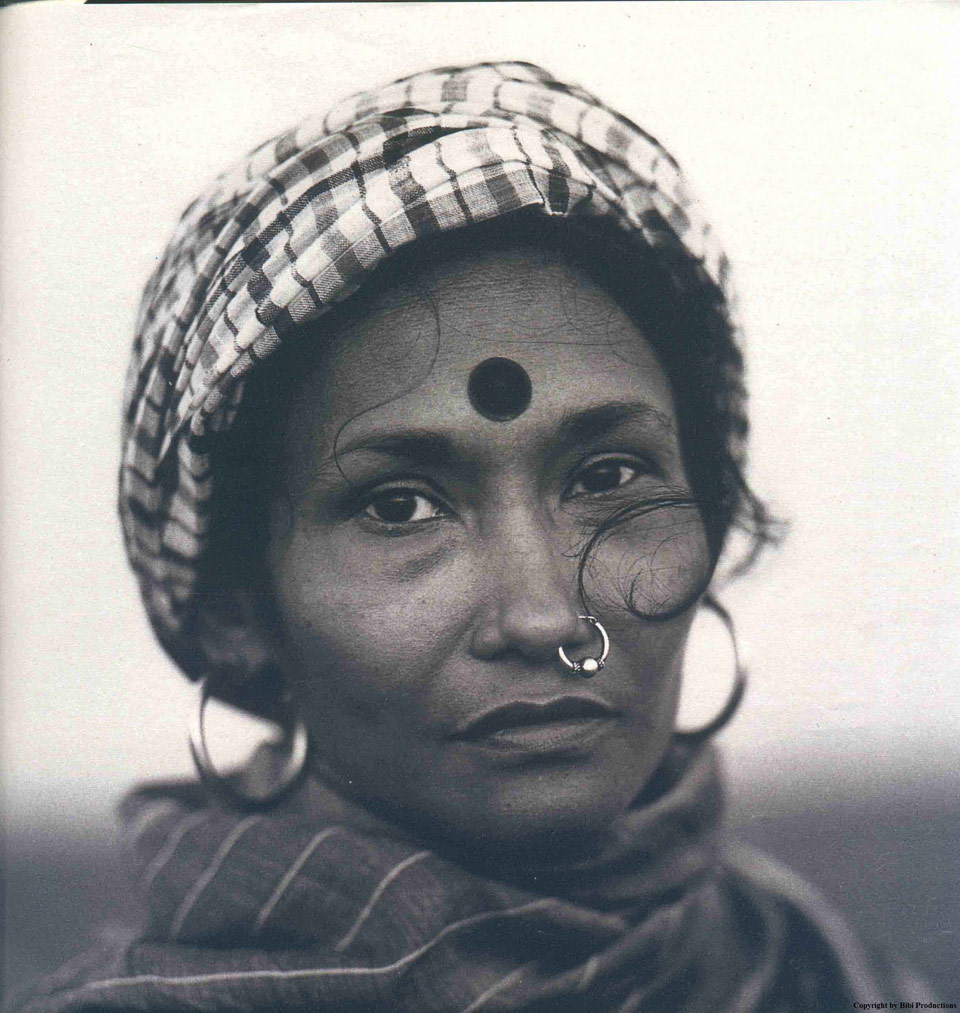
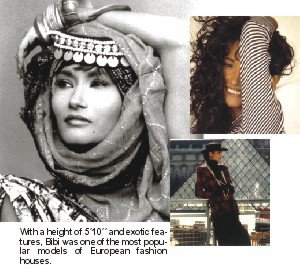
Return to Bangladesh and Philanthropy
In 1994, Bibi made a pivotal decision to return to Bangladesh with a mission to highlight and promote the country’s rich cultural heritage and craftsmanship. She established Bibi Productions to help rural weavers and artisans gain global recognition. Bibi’s first major European show, “Weavers of Bangladesh,” was held in Paris in February 1996 and organized in collaboration with UNESCO. The show was a significant success, creating employment opportunities for 30,000 Bangladeshi weavers.
Her subsequent shows, including “The Colours of Bangladesh” in Palma de Mallorca in 1997 and “Stars of Bangladesh” in London in 1998, further cemented her role as a global advocate for Bangladeshi textiles. Bibi’s work extended to the United States, with a notable appearance at the State of the World Forum in 1998 and the Indian film Dwitiya Paksha, for which she designed costumes and was featured at the Dhaka International Film Festival.
Ongoing Efforts and Legacy
Bibi Productions, a small self-funded organization, currently supports over 35,000 weavers across Bangladesh. Bibi remains dedicated to improving the economic conditions of these artisans and preserving traditional weaving techniques. Her annual collections, which include both spring-summer and fall-winter lines, reflect global fashion trends while emphasizing the use of traditional materials like cotton, khadi, silk, jamdani, and jute. Bibi has also ventured into crochet over the past two years.
Her commitment to quality is evident in the fact that not a single piece has ever been returned by international clients. Bibi Productions exports to Europe and Scandinavia, and although there is no dedicated outlet in Dhaka, some of her products are displayed at Essentials in Banani.
Bibi’s work has earned her numerous accolades, including “Woman of the Year” from Elle Magazine in 1997, an “Honorary Fellowship” from the London Institute in 1999, and recognition as “Entrepreneur Woman of the Year” by the Foundation of Entrepreneur Women. In the same year, UNESCO honored her as a “Special Envoy: Designer for Development.”
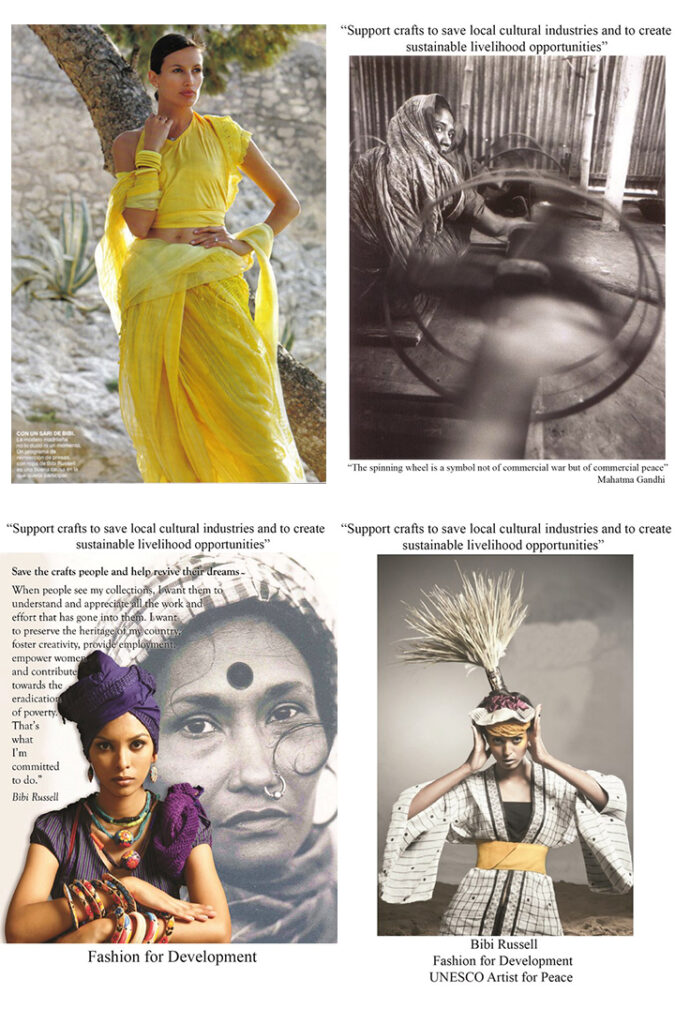
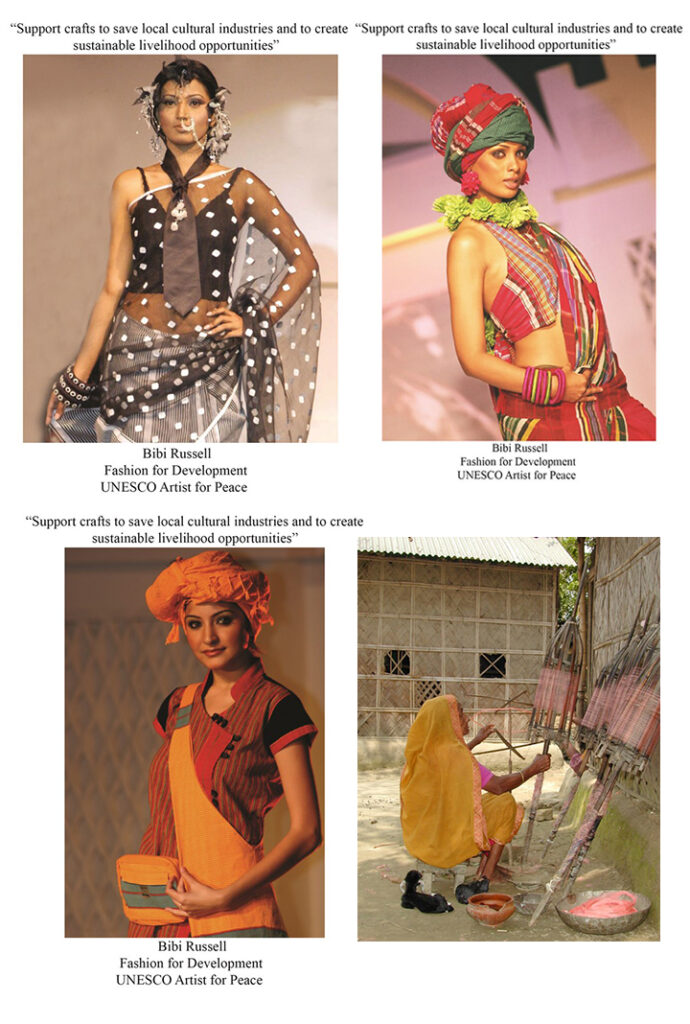
Bibi’s dedication to her craft and her country remains unwavering. Her life includes two sons, seven street children she supports, and a love for music and reading. Her ultimate goal is to continue showcasing the beauty of Bangladeshi textiles to the world and uplift the lives of the artisans she works with, proving that passion and perseverance can make a profound impact.

